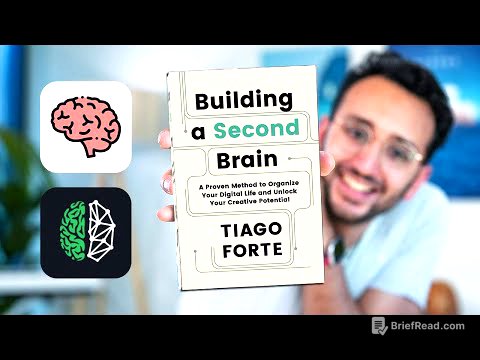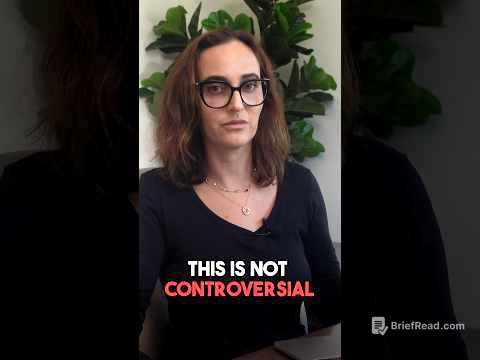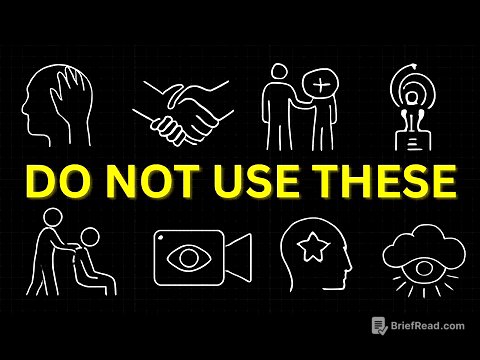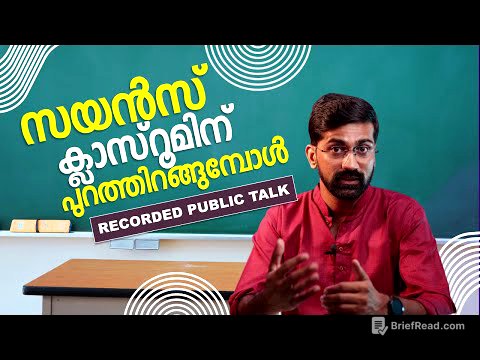TLDR;
This sermon explores the concept of grace and the freedom to choose one's master, contrasting slavery and sonship. It emphasizes that God values personal freedom, offering the ability to choose Him. The message warns against a cheapened version of grace that leads to self-indulgence and encourages listeners to embrace the self-sacrifice embodied by the cross. It also touches on the importance of remembering death (memento mori) as a motivator for holy living and concludes with an invitation to accept Jesus Christ as a personal savior.
- God values personal freedom and gives individuals the ability to choose their master.
- True grace involves self-sacrifice and obedience, not self-indulgence.
- Remembering death (memento mori) can motivate holy living.
- Accepting Jesus Christ is a conscious choice that leads to eternal life.
Introduction: A Story and a Sermon [0:04]
The sermon begins with a humorous anecdote about the speaker's mother shopping in Singapore, setting the stage for a discussion about grace. The core message is introduced: grace frees individuals to choose their own master, highlighting God's respect for personal freedom. This freedom was purchased by Christ's sacrifice, not merely for eternal life or freedom from sin, but primarily to grant the ability to choose.
The Power of Choice and Personal Responsibility [2:23]
The speaker emphasizes that God requires no one to serve Him, and those who reject salvation do so by their own choice. He contrasts this with the modern tendency to avoid personal responsibility, urging listeners to choose carefully. Drawing from his own family's experience of overcoming poverty in Eastern Kentucky, he illustrates the power of choosing a better path through faith and trust in God.
Sonship vs. Slavery: Understanding Grace [11:44]
The sermon contrasts the concepts of slavery and sonship to explain the difference between law and grace. A slave is bound by enforced rules and fear of punishment, while a son serves willingly from the heart. God does not force anyone to follow Him, having surrendered His right to act independently in their lives. The speaker warns against the misconception that sonship means serving only oneself, referencing the parable of the prodigal son, who became a slave to his own desires.
The Prodigal Son and the Cheapening of Grace [18:36]
The speaker argues that the prodigal son became a slave long before he left his father's house, highlighting how a false understanding of grace can lead to self-indulgence and a squandering of God's blessings. He criticizes the "cheapening" of grace, where people use God's provision for their own selfish desires, losing sight of eternal values. The prodigal son's story illustrates the consequences of this false grace, as he lost everything, including his self-respect, and became indistinguishable from his surroundings.
The Cross: The Heart of the Matter [23:53]
Referencing Dietrich Bonhoeffer, the speaker emphasizes that true Christianity involves self-sacrifice and "coming to die." The cross is presented as the central issue, resolving the debate between law and grace. Understanding the sacrifice on Calvary transforms law and grace from controversies into gospel truths. The law becomes a protective boundary, and grace becomes a glorious gift, prompting gratitude and obedience.
Memento Mori: Remembering Death and Living Differently [27:02]
The sermon introduces the concept of "memento mori" (remember death), a practice used by the founding fathers to provoke holy living. Reflecting on death encourages individuals to consider their legacy and live differently. The speaker shares a message he preached after his father's death, emphasizing the importance of considering one's "latter end." While death is certain and sudden, remembering it can illuminate the truths of law and grace.
The Agony of Christ and the Price of Salvation [30:30]
The speaker vividly describes the suffering of Jesus Christ, from his betrayal and scourging to his crucifixion. This detailed account emphasizes the final requirement of divine justice and the immense price paid for salvation. Only by confronting the cross and identifying with it can individuals be fully finished with sin. The speaker quotes Paul, stating, "I have been crucified with Christ," emphasizing that a Christian life means being dead to sin and embracing the nature of Christ.
Entitlement vs. Servanthood: A Call to Transformation [37:36]
The sermon critiques a culture of entitlement that rejects self-sacrifice and servanthood. Those who understand the price of salvation should not seek to offer as little as possible to Christ but should instead strive to be as profitable as possible to Him. The speaker urges listeners to transform their lives, seeking how close to heaven they can get rather than how close to the world they can remain.
Invitation to Choose: Accepting Christ [42:55]
The sermon concludes with an invitation to accept Jesus Christ as a personal savior. The speaker emphasizes that God gives everyone the ability to choose between life and death, blessing and cursing. He encourages those unsure of their eternal destiny to make a conscious choice to receive Christ, believing that He paid the price for their sins. A prayer is led for those who wish to invite Christ into their lives, offering assurance of eternal life.







![The Catholic (Counter) Reformation, Explained [AP Euro—Unit 2 Topic 5]](https://wm-img.halpindev.com/p-briefread_c-10_b-10/urlb/aHR0cDovL2ltZy55b3V0dWJlLmNvbS92aS9NSERBWlJQeWRSWS9ocWRlZmF1bHQuanBn.jpg)

